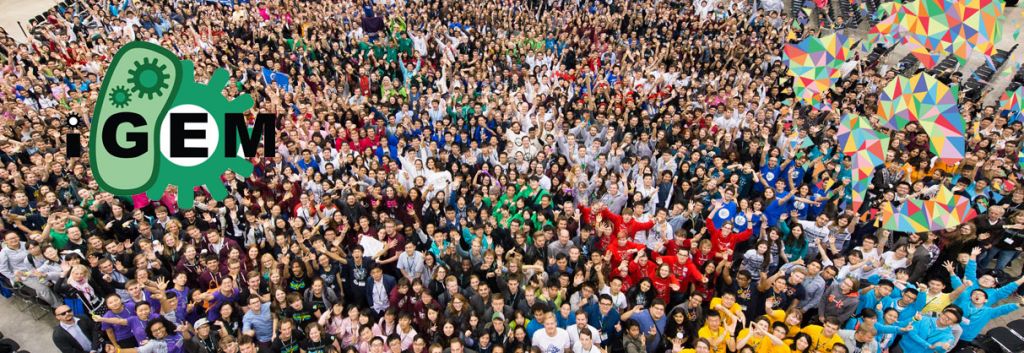The iGEM 2015 results are out! The World’s largest synthetic biology competition (24th – 28th September) held in Boston (US) has yet again shown up a great European representation in the winning teams. Divided into 3 tiers (Post-graduate, Under-graduate and High-School) winners and their projects are listed below.
 Originally launched by Massachusetts Institute for Technology in Boston (MA), the iGEM Competition has been held annually since 2004 to encourage students to create, innovate and develop projects in synthetic biology. However, iGEM as a biotechnology competition is special as it attracts students from a wide range of academic background (e.g. Engineering, Computer Sciences and even the Humanities).
Originally launched by Massachusetts Institute for Technology in Boston (MA), the iGEM Competition has been held annually since 2004 to encourage students to create, innovate and develop projects in synthetic biology. However, iGEM as a biotechnology competition is special as it attracts students from a wide range of academic background (e.g. Engineering, Computer Sciences and even the Humanities).
This year’s iGEM Giant Jamboree was held at the Hynes Convention Centre near Boston (MA) from September 24th – 28th. Winning projects included teams from Virginia (US), Israel, Czech Republic, Germany, the Netherlands and Teipei, demonstrating yet again the strong influence the iGEM competition has over students from European institutions.
Undergraduate Category
1st Place Grand Prize: Team: William & Mary Project: “Noise”
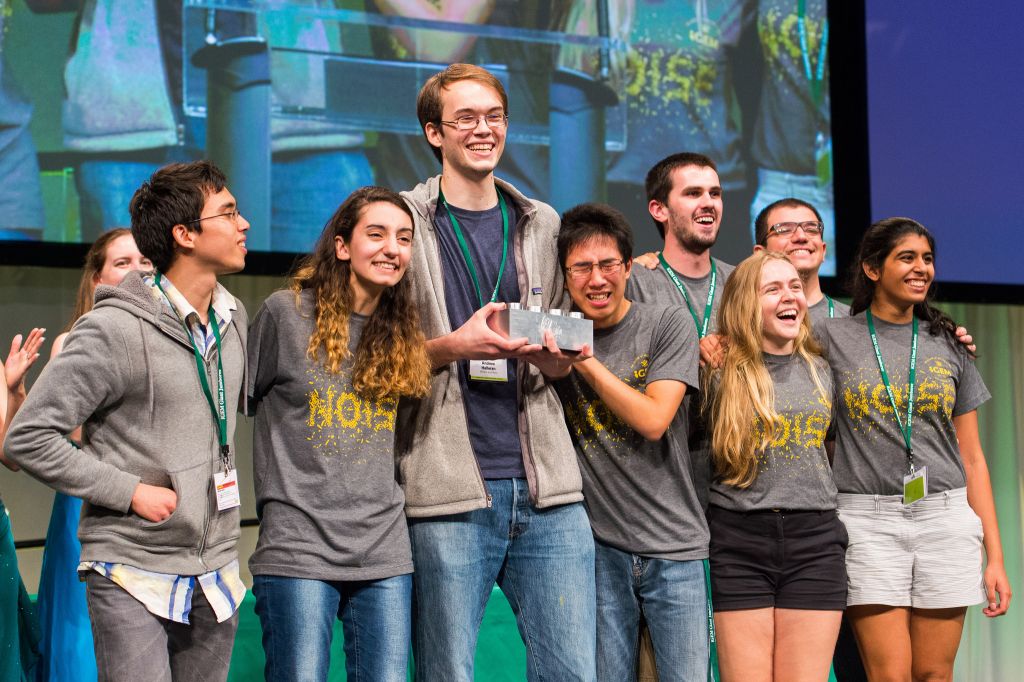
“Measurement of Promoter-Based Transcriptional Noise for Application in Gene Network Design”
From the William & Mary University (Virginia, US) this team focused on the measurement of ‘noise’ generated in synthetic biology studies. They also developed a comprehensive outreach and public engagement program, with 9 synthetic biology workshops for the public and the launch of a school curriculum of 24 synthetic biology activities.
2nd Place: Team: Team Czech Republic Project: The IOD Band
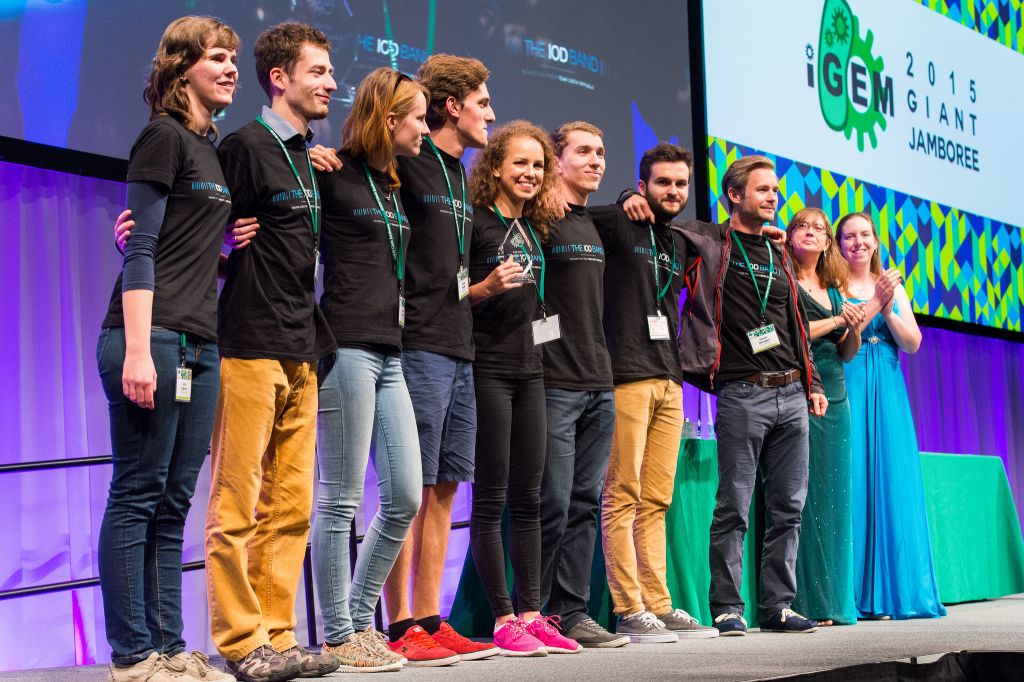
From the Czech Republic, team ‘IOD Band’ have engineered a tumor mapping and diagnostic test using “processing units called Input Output Diploids. IODs use antigen recognition and intercellular communication to create a logical network by which even a single cell carrying the desired marker profile can be identified in a background of millions.”
3rd Place: Team: Heidelberg Project: ‘Catch it if you Can‘
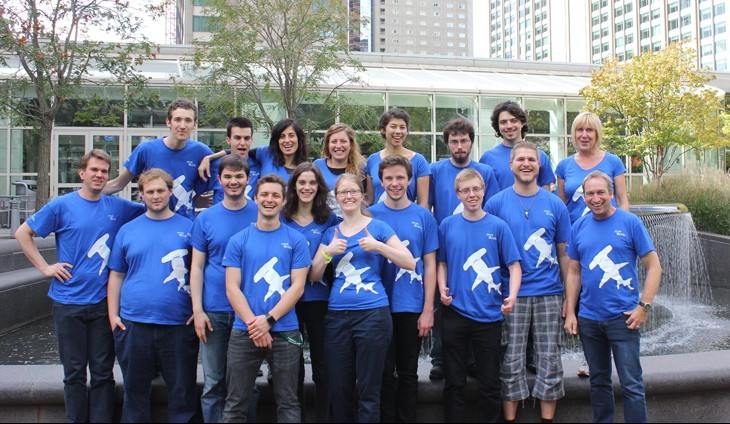
Team Heidelberg are from the University of Heidelberg (Germany). Their project ‘Catch it if you can’ looked to introduce use of functional RNA and other nucleic acid tools to improve synthetic bio tasks and development of a software to create new aptamers and aptazymes.
Postgraduate Category
1st Place Grand Prize: Team: Tu Delft Project: Biolink 3D Printing
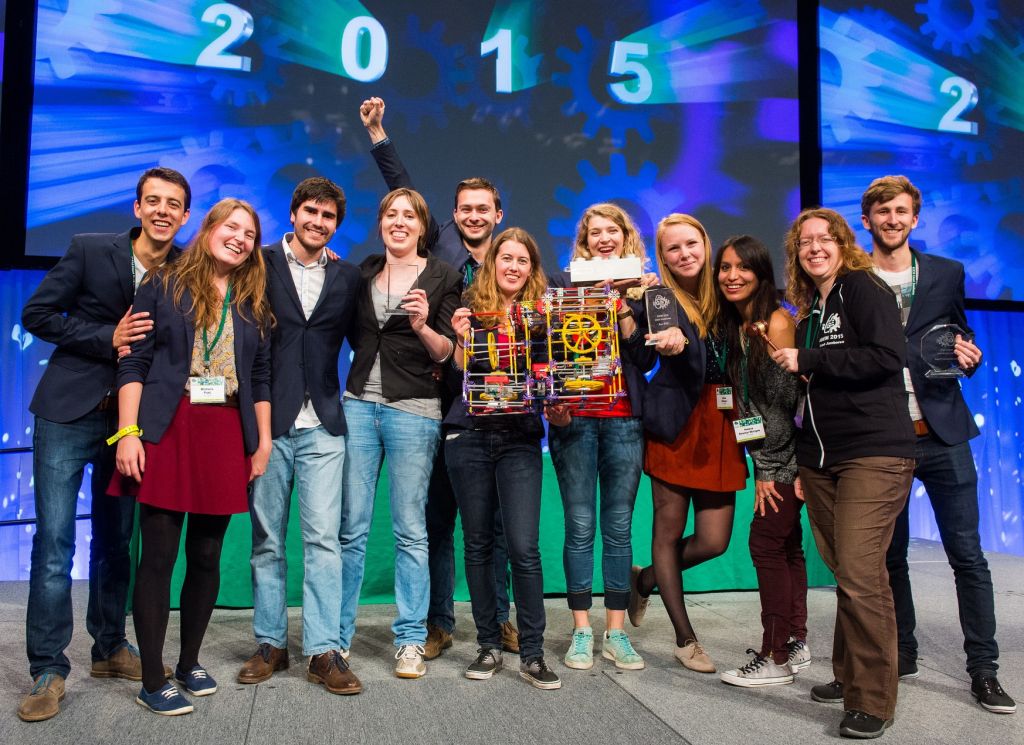
Tu Delft are from the Dutch Technology University in Delft (NL) and have invented a 3D microbe-printer (‘The Biolinker’) to produce layers of a designed bioink made of bacteria that can bind together into a desired structure.
2nd Place: Team: BGU Israel Project: The Boomerang System
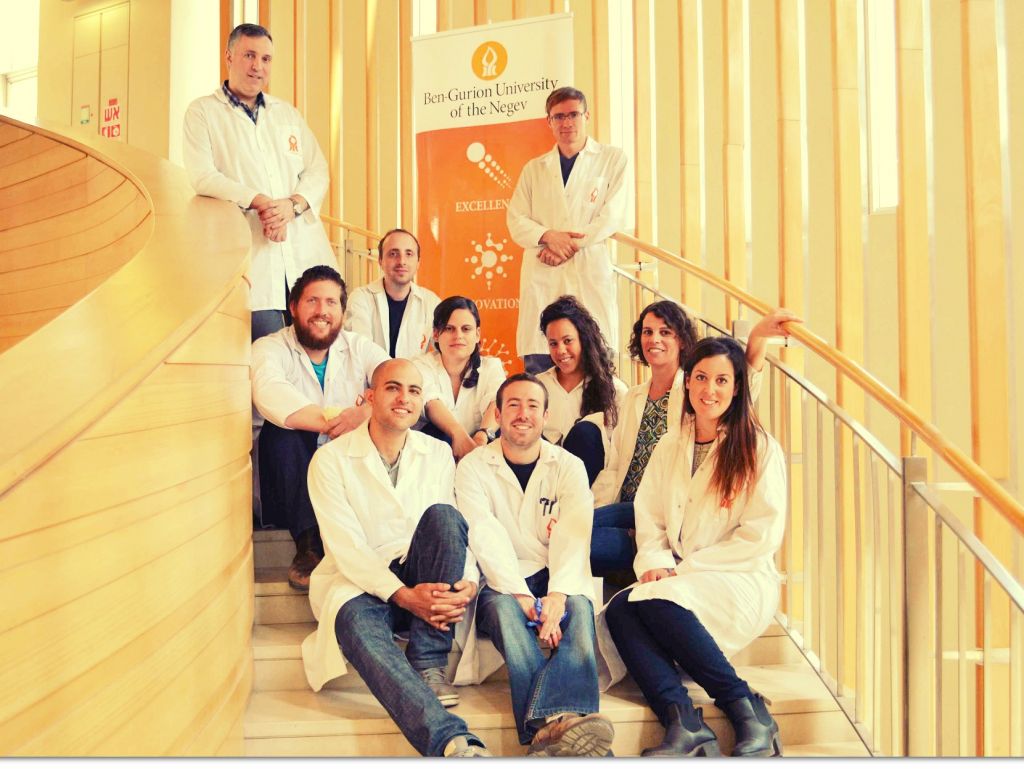
Team BGU from Ben-Gurion University of the Negev in Beersheba (Israel) have come up with the CRISPR-Cas9 based ‘Boomerang System’ – a genetic device which enables more exclusive targeting of cancer cells in oncology therapies.
High School Category
1st Place Grand Prize: Team: TAS Taipei Project: Granzyme B
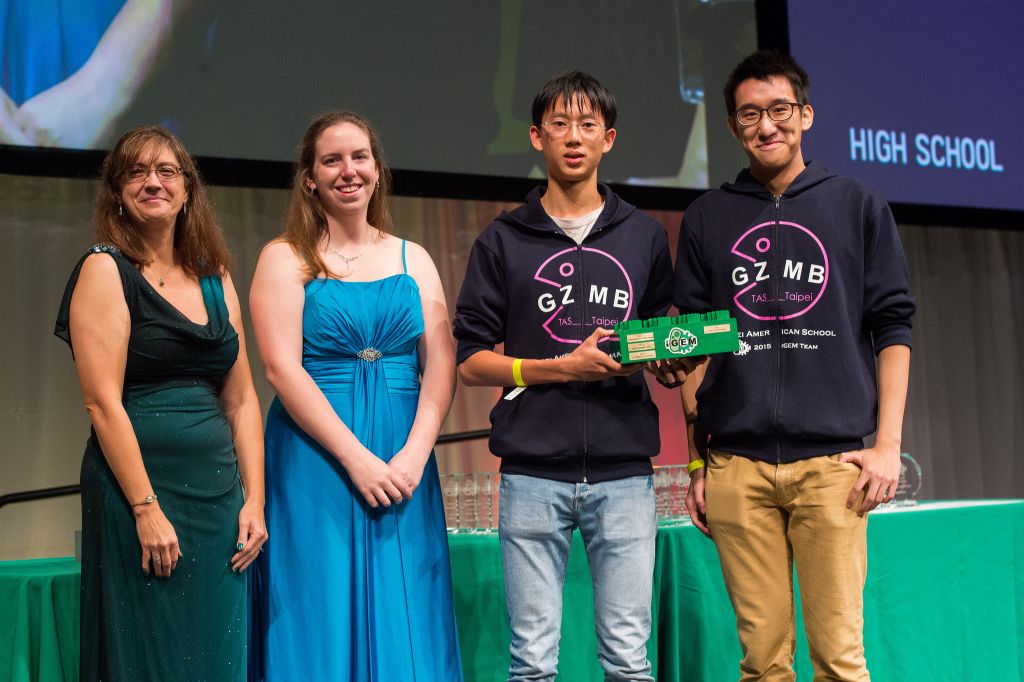
Granzyme B is a project from the TAS Teipei Team – a high school iGEM team from the Teipei American School in Tianmu (Teipei). They designed an inhibitor for elevated Granzyme B levels (which can cause tissue damage in the extracellular matrix) using 2 different delivery prototypes; a cream and a semi-permeable membrane based bandage.
Congratulations to this years winners! Yet again, the iGEM competition has proven how it is encouraging young people from all academic backgrounds across the world to innovate in the field of Synthetic Biology.




